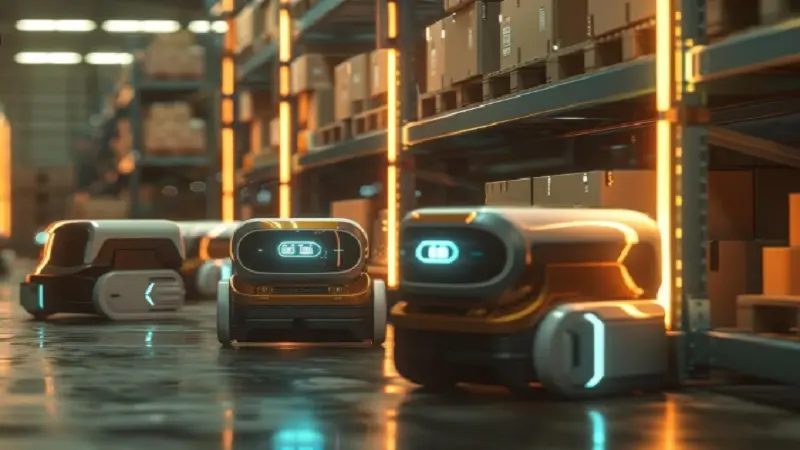In the rapidly evolving world of automation and robotics, the legal battle between Ocado and AutoStore has captured significant attention. This clash of titans in the e-commerce and logistics space centers around patent infringements and the future of automated warehouse technology. With both companies striving to revolutionize how we handle goods, the stakes are incredibly high. This article delves into the intricacies of the Ocado vs. AutoStore court case, the innovations at the heart of the dispute, and the broader implications for the industry. Ocado Autostore Court Autostorewessling The Robotreport
The Players: Ocado and AutoStore
Ocado
Ocado, a British online supermarket, has transformed itself into a technology company specializing in automated grocery fulfillment solutions. Its state-of-the-art Ocado Smart Platform (OSP) integrates robotics, AI, and sophisticated software to streamline warehouse operations. Ocado’s robotic systems are designed to optimize space, improve efficiency, and reduce the time it takes to fulfill customer orders. Ocado Autostore Court Autostorewessling The Robotreport
AutoStore
AutoStore, a Norwegian company, is a pioneer in the field of cube storage automation. Its technology focuses on densely packing storage bins in a cubic grid, with robots traversing the top of the grid to retrieve items as needed. This system maximizes space utilization and is renowned for its efficiency and scalability. AutoStore’s solutions are used by companies worldwide to enhance their warehouse operations.
The Legal Battle
Background
The legal dispute between Ocado and AutoStore erupted in 2020 when AutoStore filed lawsuits against Ocado, accusing it of patent infringement. AutoStore claimed that Ocado’s Smart Platform infringed on several of its patents related to robotic storage and retrieval systems. Ocado, in turn, denied these allegations and counter-sued, asserting that AutoStore’s claims were baseless and that it held its patents for its technology.
Key Patents at Issue
The core of the legal battle revolves around several key patents. AutoStore’s patents cover aspects of its cube storage system, including the robots’ design and operation, the grid structure, and the software controlling the system. Ocado’s technology, while similar in some respects, has its unique elements and innovations. The court must determine whether Ocado’s solutions infringe on AutoStore’s patents or if they constitute independent innovations. Ocado Autostore Court Autostorewessling The Robotreport
Court Proceedings
The court proceedings have been complex and protracted, involving multiple jurisdictions and numerous hearings. Both companies have presented extensive evidence, including technical specifications, expert testimonies, and demonstrations of their technologies. The legal teams have argued over the interpretation of patent claims, the novelty of the innovations, and the intent behind the designs.
Innovations in Question
Ocado’s Smart Platform
Ocado’s Smart Platform is a comprehensive solution that integrates various technologies to automate warehouse operations. Key components include:
- Robotic Picking: Ocado’s robots are designed to navigate a grid system, picking items from storage bins and transporting them to packing stations.
- AI and Machine Learning: The platform uses AI to optimize the picking routes, predict demand, and manage inventory.
- Advanced Software: Ocado’s proprietary software coordinates the entire system, ensuring seamless communication between robots, managing orders, and tracking inventory in real time.
AutoStore’s Cube Storage System
AutoStore’s cube storage system is centered around the efficient use of space and resources. Key features include:
- Cubic Grid Storage: Items are stored in a tightly packed grid, with robots accessing them from the top.
- Modular Design: The system is highly scalable, allowing businesses to expand their storage capacity without significant disruptions.
- Energy Efficiency: AutoStore’s robots are designed to be energy-efficient, reducing operational costs and environmental impact.
Implications for the Industry
Technological Advancements
The outcome of the Ocado vs. AutoStore case could have significant implications for the future of warehouse automation. A ruling in favor of either company could set precedents for how patents are interpreted and enforced in the field of robotics and automation. This could encourage or deter further innovations, depending on the legal clarity provided by the verdict.
Market Dynamics
The legal battle also affects market dynamics. Both Ocado and AutoStore are leaders in their field, and the resolution of this case could influence their competitive positions. A victory for AutoStore could strengthen its market dominance, while a win for Ocado could bolster its reputation as a technological innovator. Additionally, the case could impact partnerships, investments, and customer trust in both companies.
Broader Industry Impact
Beyond Ocado and AutoStore, the case highlights the importance of intellectual property in the technology sector. As companies continue to innovate and develop new solutions, protecting and respecting patents becomes crucial. The case serves as a reminder that while competition drives progress, it also necessitates clear legal frameworks to resolve disputes and ensure fair play.
Conclusion
The Ocado vs. AutoStore court case is a pivotal moment in the world of warehouse automation. As both companies vie for technological supremacy, the legal battle underscores the complexities of patent law and its impact on innovation. Regardless of the outcome, the case is a testament to the rapid advancements in automation technology and the ongoing quest to revolutionize how we handle goods in the modern era. As we await the final verdict, the industry watches closely, recognizing that the implications of this case will resonate far beyond the courtroom.
